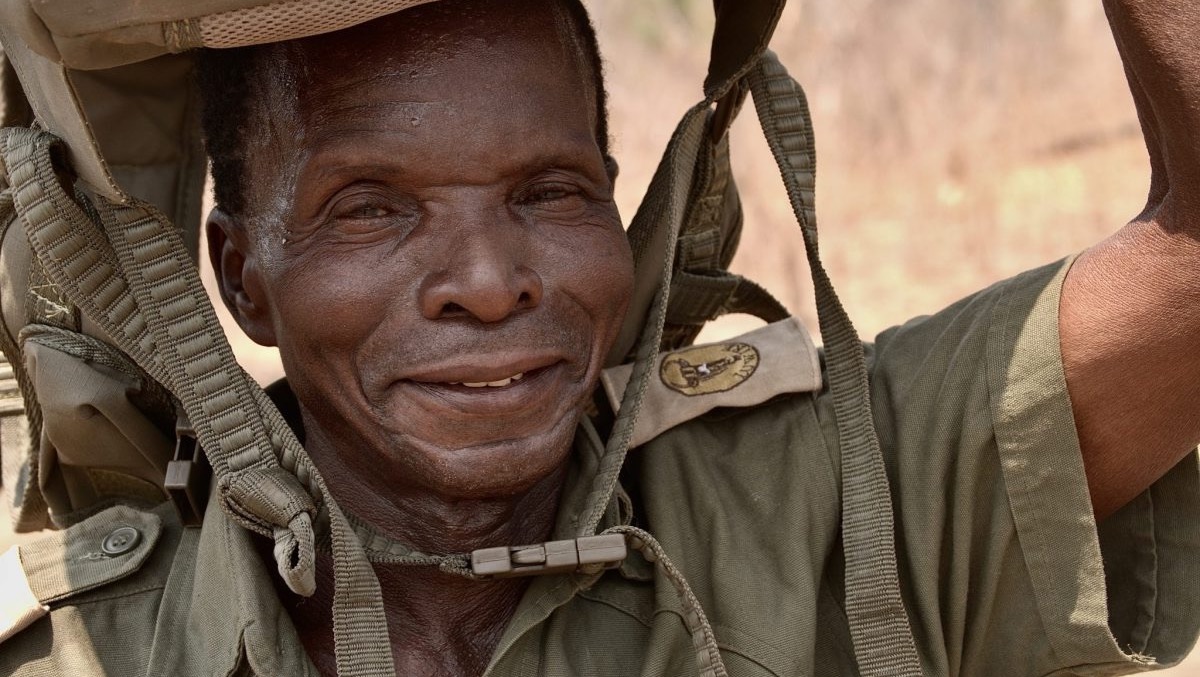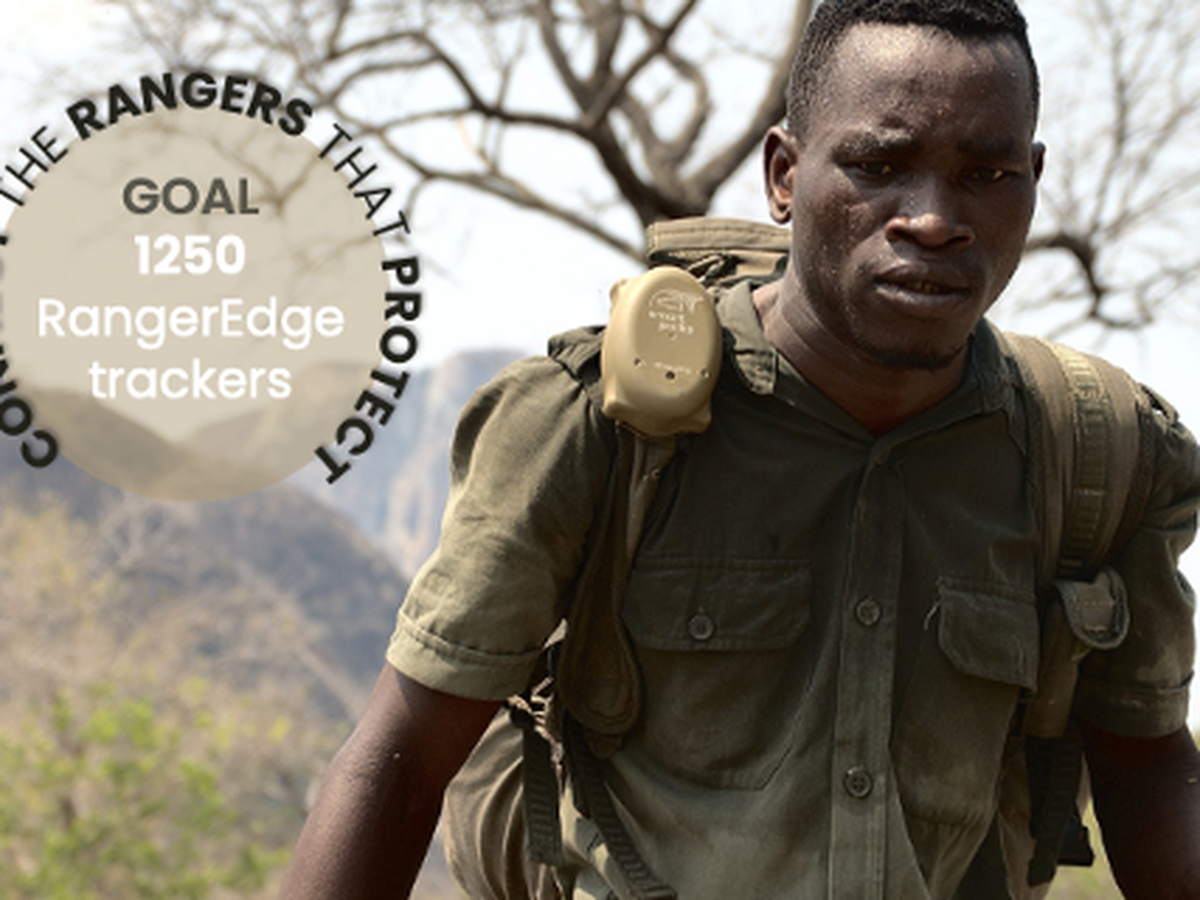Everyday, rangers put their lives on the line to save endangered wildlife!
These brave women and men are patrolling vast and remote areas and often spend multiple contiguous days in the field. Although these rangers are trained, these remote areas are particularly demanding with regards to the coordination of activities. Enabling these rangers to continuously share their location with the control room, where coordination takes place, helps to patrol on a higher tactical level. Even more important, it allows for a more responsive operation and cooperation in case of emergency and danger for the rangers themselves.
Wildlife rangers are generally under-equipped, underpaid, and often under-appreciated. According to the Thin Green Line Foundation, an organisation that provides vital support to wildlife rangers who are at the front-line of conservation, over 1,000 park rangers have been killed in the line of duty over the past 10 years - a large percentage of these are due to commercial poachers and armed militia groups.
These rangers protect the wildlife species we all love. Taking larger mammals such as elephants and rhinoceros as an animal group at risk of poaching, we set out to help nature reserves and game parks to mitigate this risk and effectively conserve endangered wildlife. A good example that demonstrates the severity of this problem throughout Africa is the following: There were 13 recorded poaching incidents in South African game parks in 2007. This rate shot up to 1004 in 2014. Poaching numbers have declined significantly in recent years but are still way too high. However, this positive – and very welcome – decrease does not mean rhinos are now thriving. On average in the country, a rhino is killed for its horn every 22 hours.
Smart Parks , IRNAS, and the Rompa Group have developed the RangerEdge tracker as a tool to assist these rangers with this crucial task whilst protecting them in the field. They are the “boots on the ground” that stand between poachers and endangered species like the elephant, eastern black Rhino and European bison. Smart Parks is a non-for profit organisation with the mission to protect wildlife with passion and technology, but it is also essential that we protect and connect the rangers that put their lives on the line.

What is next?
We have been releasing the first few hundred RangerEdge devices to assist and protect rangers in Namibia, South-Africa and Malawi. In 2022 we will increase our production to provide other protected areas with this new tool and we will continue to update the device firmware and smartphone app with new features. Therefore, to cover the cost to produce an additional 1250 trackers, our goal is to raise 12.5K EUR.
We remain open for highly appreciated additional funding, new feature requests and development support to keep this device in the best shape we can.
By making rangers better connected, technology will help to keep them and the wildlife they protect safe.


These brave women and men are patrolling vast and remote areas and often spend multiple contiguous days in the field. Although these rangers are trained, these remote areas are particularly demanding with regards to the coordination of activities. Enabling these rangers to continuously share their location with the control room, where coordination takes place, helps to patrol on a higher tactical level. Even more important, it allows for a more responsive operation and cooperation in case of emergency and danger for the rangers themselves.
Wildlife rangers are generally under-equipped, underpaid, and often under-appreciated. According to the Thin Green Line Foundation, an organisation that provides vital support to wildlife rangers who are at the front-line of conservation, over 1,000 park rangers have been killed in the line of duty over the past 10 years - a large percentage of these are due to commercial poachers and armed militia groups.
These rangers protect the wildlife species we all love. Taking larger mammals such as elephants and rhinoceros as an animal group at risk of poaching, we set out to help nature reserves and game parks to mitigate this risk and effectively conserve endangered wildlife. A good example that demonstrates the severity of this problem throughout Africa is the following: There were 13 recorded poaching incidents in South African game parks in 2007. This rate shot up to 1004 in 2014. Poaching numbers have declined significantly in recent years but are still way too high. However, this positive – and very welcome – decrease does not mean rhinos are now thriving. On average in the country, a rhino is killed for its horn every 22 hours.
Smart Parks , IRNAS, and the Rompa Group have developed the RangerEdge tracker as a tool to assist these rangers with this crucial task whilst protecting them in the field. They are the “boots on the ground” that stand between poachers and endangered species like the elephant, eastern black Rhino and European bison. Smart Parks is a non-for profit organisation with the mission to protect wildlife with passion and technology, but it is also essential that we protect and connect the rangers that put their lives on the line.

What is next?
We have been releasing the first few hundred RangerEdge devices to assist and protect rangers in Namibia, South-Africa and Malawi. In 2022 we will increase our production to provide other protected areas with this new tool and we will continue to update the device firmware and smartphone app with new features. Therefore, to cover the cost to produce an additional 1250 trackers, our goal is to raise 12.5K EUR.
We remain open for highly appreciated additional funding, new feature requests and development support to keep this device in the best shape we can.
By making rangers better connected, technology will help to keep them and the wildlife they protect safe.


The first RangerEdge trackers were tested during the Tusk Wildlife Ranger Challenge by the ranger team from Luwire , the first Smart Parks in Mozambique . Special thanks to Tome (first photo) and Vincente (second photo) and all rangers for the important task you fulfil.

